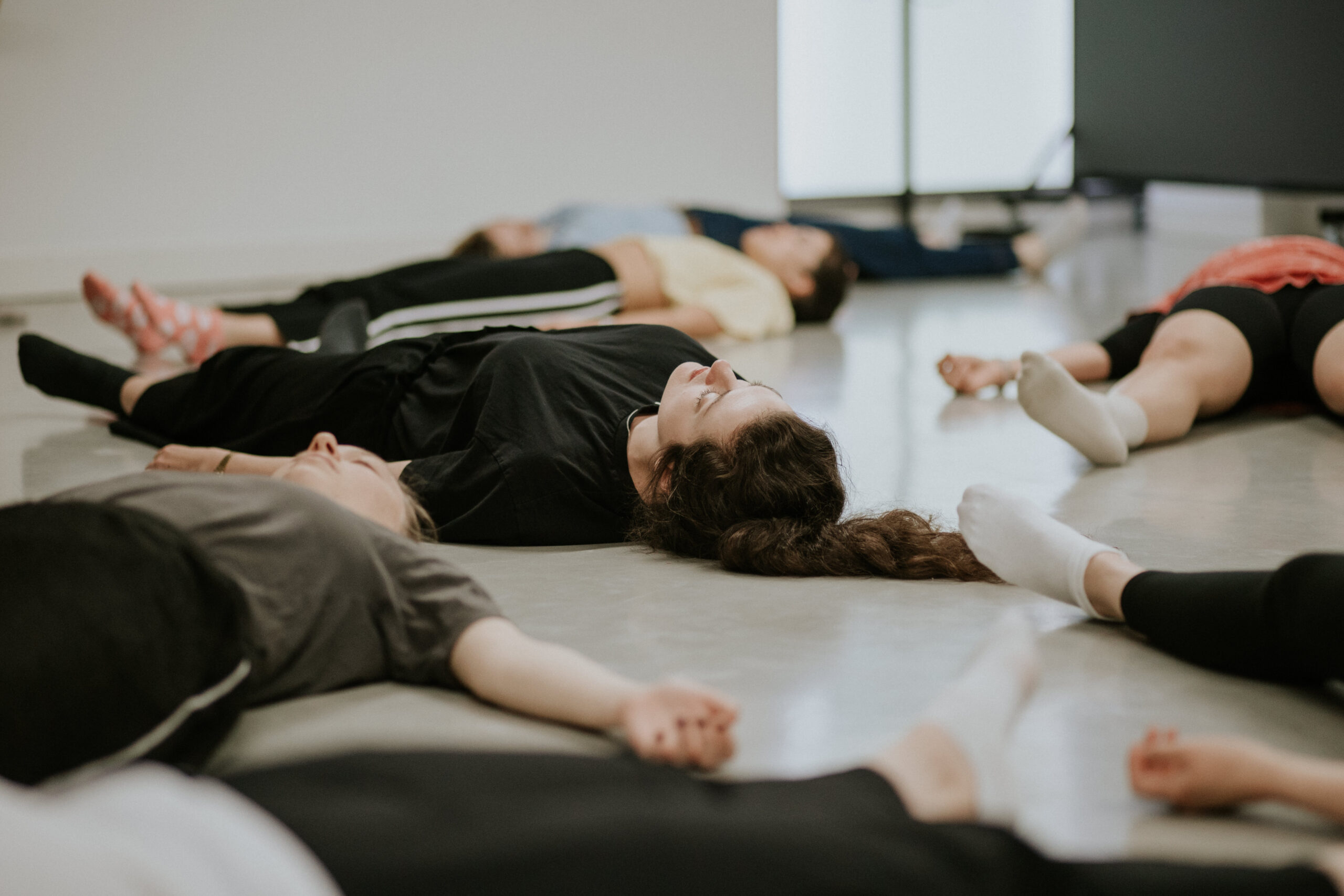Lauren McCrostie talks about finding balance and a source of excitement, income and stability, outside acting.
People working within this profession are often strangely acclimatised to its variant and demanding nature. We are used to, and acceptant of daily ghosting and rejection, financial instability, uncertainty over our career trajectory and ultimate powerlessness over our calendars. We seem to be either frantically juggling tasks simultaneously or twiddling our thumbs waiting by the phone. The relentless growth in followers makes it tough too; we feel lost in a sea of competition and the feeling that we are never doing quite enough.
Yes – work is wonderful, it’s exhilarating and great tuition for us. It feeds our soul and strengthens our insight. But it can be all-consumptive and often, the line between work and life gets well and truly blurred.
Carving out a segment of your life which is completely separate to that of acting seems supremely important. Finding something that you can routinely do would work to help balance the uncontrollable way of the industry and tackle the worries that follow it. It is not necessarily about taking a step back from striving towards jobs, but more about releasing your dependence on it.
This could be as small as sewing or large as starting your own company. It could be another job or a mere hobby. Whether it’s discovering a love for basketball, baking, banking or building sites, having another aspect of your life which isn’t reliant on the industry demonstrates innumerable benefits. It allows you to gain peace of mind, perspective, a sense of consistency and better financial security.
Use what you’re already doing
The majority of actors are very much ‘jobbing’ ones; they collect jobs from different places rather than working for one sole place or business. They likely dabble in other careers simultaneously (unless you live in LA!). Whether it is as a waitress, dog walker, temp, fitness instructor or babysitter: most actors you may bump into everyday typically need other things to help support and finance the pursuit of their career. Additionally, over recent years there has been a rise in the ‘gig economy’; the portfolio career; the multi-hyphenate method. People are no longer limiting themselves to one profession but rather having their fingers in multiple different pies. Seeing as it’s likely you already possess another part of your life separate to the theatrical world, consider making it something of true value and equal passion to acting for yourself.
Aid your mental wellbeing
Cultivating ‘another calling’ is a preventative medicine to the stress actors undergo. Workers in the creative sector are three times more likely to experience depression and anxiety than workers in other disciplines. The charity ‘Inspire’ has said that features of our working environment “contributes to the likelihood of developing mental health problems”. A startling 60% of creative professionals revealed experiencing suicidal thoughts. “Pressure to reach high standards, irregular work, contracts, financial security, long hours,” are listed as a few of the burdens we experience.
The fickle nature of the industry leads to unsettled and anxious thoughts frequently. Working at a loss and seeing peers secure work while we miss out can cause self-esteem to plummet: Why haven’t I worked in months? Does my agent like me? Why didn’t I get that part? Will I ever get a job? Do I need to train? Will this be my life forever? Am I doing enough?
Additionally, the image of an actor’s life is not presented truthfully by the mainstream media. We are only fed the stories of critically acclaimed professionals, box office boomers and award season ceremonies. Only seeing a minuscule percentage of the acting population is a falsity and leaves us feeling dissatisfied, defeated and unfulfilled. Yet actors needn’t place their self-worth or reliance on getting work – this stability and fulfilment can be found elsewhere. Grasping support from a separate discipline not only broadens your skill set, but offers peace of mind, clarity and a capitol crutch.
Cultivate a healthier relationship with acting
Working on your other skills will give you healthier relationship to your work. Loosening your dependence on it offers you perspective, and in turn a better attitude and relationship to acting. When going into auditions, you are giving yourself the space to really focus on what the character calls for, rather than showing desperation and urgency through fear of not paying your rent. The headspace occupied by worry can be given to researching a role and thoroughly unpicking a script; the best part! You are flooded with inspiration for roles as well as potentially gaining a new and varied body of skills. After a stressful or unsuccessful meeting, you can always distract or appease yourself with this other part of your life.
Cultivate a healthier relationship with yourself
Having something completely aside from acting, which you invest time and energy into, also has the benefit of allowing you to become ‘you’ again. Discovering a passion where you can get headspace, self-worth, confidence, distance, stability gives you permission to entertain your other values. After all, acting isn’t everything there is to know about you! Prioritising your interests over the interests of the job rebuilds your relationship with yourself and other values, as well as building self-confidence. Finding another string to your bow, another financial feed, another enjoyment, another way to spend your days, helps you to grow as a person, not just as an actor.
Financial security
The big thing to note is how a side-gig or side-interest might add to an actor’s financial stability. It is a reliable scaffolding for funding the precarious nature of this industry. Knowing (or quickly learning) that following this career path is possible only through passion and not economic profit, means the majority of actors need to get money elsewhere. If you want to make your life as an actor a sustainable and fruitful one, investing time in a ‘second string’ to fund the pursuit of it will aid longevity in your career.
So!
Fundamentally, acting is likely to be your dominant passion and where you spend most of your time, so it might be difficult to find something else of interest at first. But as listed above, you are probably doing something on the side already and the benefits of doing so undeniably strengthens you as a person and performer.
It is worth noting that there is significance in integrating an interest that is unlike theatre, film and the world of performance. To fully be able to disengage with its difficulties. Something that you can throw yourself into and forget the anxieties of auditions, agents, money, and peers completely. Perhaps give time to those interests you’ve let fall by the way side over the years, the things you’ve ‘had to’ let go of in pursuit of your acting. Turning the focus from acting may seem counter intuitive; shouldn’t I spend my other hours expanding my repertoire as a performer? But in the same way that diversifying your acting range through intense practitioner courses, dance classes, accent clinics, and more, generates skills and range, there is equal if not more importance in diversifying too.
Check out these articles on Spotlight to gather up more inspiration for starting on a new string; podcasting, directing, cultivating creativity.



















